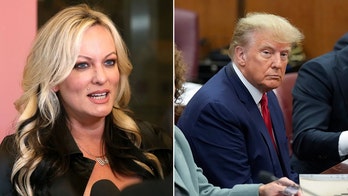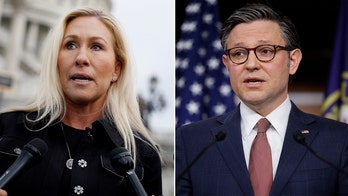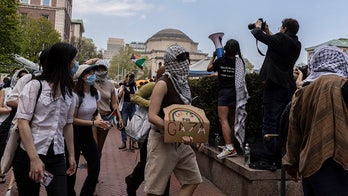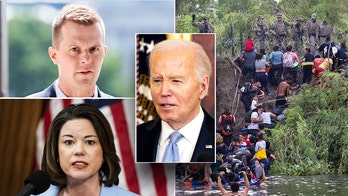The Obama administration isn't the only one to score a diplomatic win with the release of two American journalists held in North Korea; it allowed Kim Jong Il to seize a photo opportunity with former President Bill Clinton as a way to bolster his reclusive regime.
Clinton met with the ailing leader Tuesday to push for the release of Laura Ling and Euna Lee, who were sentenced by the Korean government in June to 12 years of hard labor for allegedly entering North Korean territory illegally.
Following exhaustive talks on a wide range of issues during three hours and 15 minutes of face to face meetings, Clinton and Kim posed in several photographs inside the state capital.
The North Korean government claims it pardoned the two journalists after Clinton apologized for their actions. But Clinton's wife, Secretary of State Hillary Clinton, told reporters Wednesday that no such apology ever took place. The White House also insisted no messages were passed from President Obama to Kim.
Nonetheless, Pyongyang's decision to let the two journalists go was hardly a gesture of friendship aimed at improving relations, analysts say.
"From a propaganda standpoint, the photos are huge for Kim Jong Il and his regime," said John Park, a senior research associate of Northeast Asian Security for the U.S. Institute of Peace.
"It shows that the foreigners were coming over to North Korea capital to talk about all of the world's important issues," added Gordon Chang, North Korea scholar and author. "That really bolsters the regime."
Chang said the North Koreans were forced to release Ling and Lee because the two journalists became "liabilities" for the reclusive regime.
"The longer they held them, the more the people started to think about the North Korean legal regime as cruel," Chang said. "They were acting in their own interest. And that means that perhaps the openings with the North Koreans are less than we might think."
Others, like Dr. Nicholas N. Eberstadt of the American Enterprise Institute, contend North Korea used Clinton's humanitarian mission to "normalize its status as a nuclear weapons-possessing state."
"The Clinton visit is an attractive offer because it seems from their estimate that this overture can be used to further much grander purposes than releasing those two hostages," Eberstadt said.
North Korea violated two U.N. resolutions when it sent the first of several rocket hurtling over the Pacific Ocean in April -- moves the White House called "provocative" threats to the international community.
When the regime detained Ling and Lee allegedly for entering the country illegally in June, extensive negotiations between the United States and North Korea resulted in a decision to send Clinton on a humanitarian mission to press for their release.
Other U.S. leaders -- like Massachusetts Sen. John Kerry, New Mexico Gov. Bill Richardson and former Vice President Al Gore -- were also mentioned as possibilities.
But Pyongyang picked Clinton, analysts say, because of his administration's former relationship with the regime and his stature as a former U.S. president.
"Bill Clinton is the only political survivor on the world stage who is a proponent of Sunshine Policy," said Eberstadt, referring to a failed foreign policy doctrine that sought peaceful cooperation between the North and South Koreans.
While U.S. officials have remained largely close-mouthed on the future of U.S.-North Korean relations following Clinton's visit, Chang suggested the U.S. proceed with caution in dealing the totalitarian regime and calling for it to end its nuclear weapons program.
"We should always understand the context in which these events occur," said Chang, referring to the journalists' release. "Then we can make our judgment about how it goes forward."
"We've had bad relations with North Korea for six decades and there's structural reasons for that. The release of the reporters -- as great as it is -- doesn't change those structural reasons. They still maintain a cruel and repressive regime," he said.




